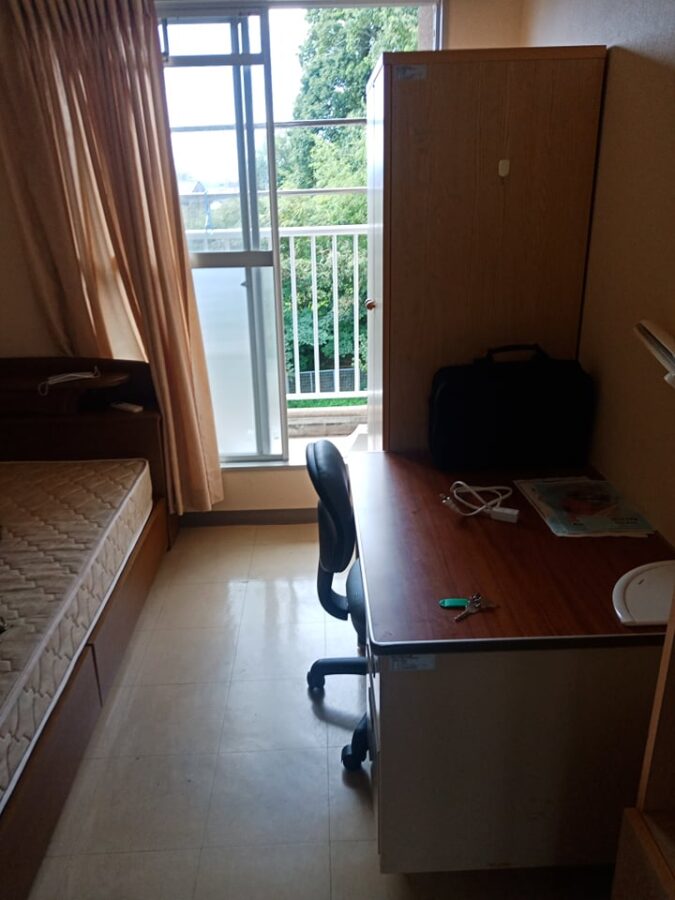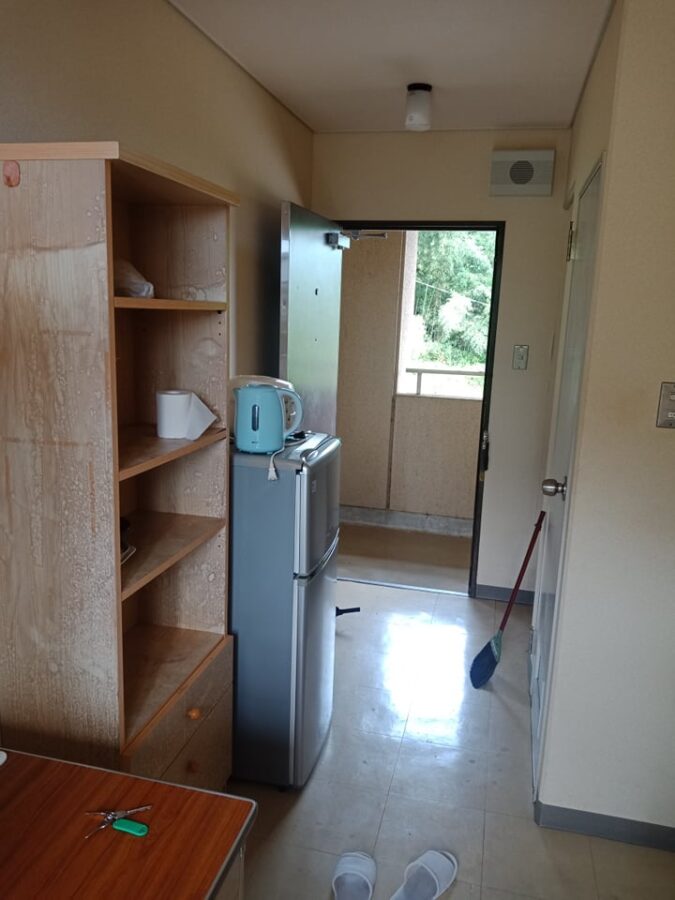New scholars need to prepare many things before they embark on their journey to make the best out of their first couple of days in Japan. However, after arriving in Japan, there are even more things to prepare. In my previous article, I have shared my experiences during my quarantine. In this article, I will share my experiences about what needs to be taken care of after the quarantine, such as housing, procedures at the local city hall, insurance, bank accounts, SIM cards, clothes, etc.
Housing
The first thing to take of after finishing the quarantine is housing. For those who get to stay at a dormitory, things will be usually taken care of before arriving in Japan. It is also possible to rent an apartment, the rent will be higher as compared to living in a dormitory room, though. For reference, at Shimane University, the rent for a dorm room ranges from 4.000-24.000 Yen. In comparison, the price for renting an apartment ranges from 15,000-50,000 yen. Rent differs from city to city and area to area; rents for both dormitory rooms and apartments in big cities such as Osaka and Tokyo tend to be much higher.
At Shimane University, those who didn’t get to stay at a dormitory, they usually stayed at the International House (Guest House) for the first month. For reference, I had to spend around 20,000-30,000 yen for staying in the room in the picture above (Room rent, deposit, fee management, WIFI, electricity and water). Usually the university will provide us with a tutor (a Japanese student) who helps us prepare for anything that has to be done within the first couple of weeks. Contact information will be usually exchanged before leaving for Japan, so we can ask them whatever we want to know about life in Japan, about the university etc .
Those who decide to rent a private apartment can see many different rooms and then decide on where they want to stay in the end. The tutor will assisted our apartment hunt. In addition to the rent and facilities one should also not forget about the distance to the university. Of course, everyone’s priorities are different, some prioritize distance, some prioritize comfort and some a cheap rent. Make your best choice according to your own needs! After that, the fire insurance for one year has to be paid (around 8.000-10.000 yen). In my experience, I payed around 15.000-25.000 yen in the first month for the rent and for the insurance. Water, electricity and gas are around 4000-8000 in total.
City hall, insurance, bank accounts, and SIM cards
The next thing to do the day after the quarantine ends and after it is decided where you are going to stay is to report the address to the local city hall. You need to fill out a form there, and show your passport, visa, student card and residence card. Next, you need to open a bank account. As a MEXT scholar, we are generally required to open an account at the Japan Post Bank (Yucho Bank), because every month the scholarship will be sent through this bank account. In order to get a phone and a SIM card, one needs to open a bank account first. There are many different contracts and SIM cards, ranging from 5 GB to unlimited GB with prices ranging from 2.000-5.000 Yen (or sometimes even more) per month. Payments can be made automatically every month via debit from our account. What you have to be careful about is that cellphones that we bring from our countries sometimes cannot be used with SIM cards in Japan. In that case, we have to buy a new cellphone in Japan. The prices generally range from 20.000-180.000 Yen, but sometimes providers offer campaigns, where one can get a new cellphone for only 1 Yen. It really depends on your luck at the time. Some cellphone shops also offer purchases on credit, but the procedure is quite difficult. As for the internet that you use at home, you can use the internet on your phone through tethering. If that’s not enough, you can get a router and a contract for using WIFI for your room (prices usually range from 3.000-6.000 Yen per month. Your tutor or your Japanese friends can help you with all of the procedures above.
Room equipment and clothes
The next thing I got was equipment, such as cutlery, cooking utensils, a refrigerator, a washing machine, a microwave, bedding, clothes, etc. A fairly comfortable new single bed costs between 10.000-30.000 Yen. I recommend asking your tutor for help to buy the bed or buying it at an online shop. Cooking utensils and tableware such as plates, spoons, chopsticks, pans, knives, etc can be purchased at the supermarket or at the hyaku Yen shop (100 Yen shop). For this I spent around 2000-3000 yen.
As for the refrigerator, the washing machine, and the microwave, buying these new might get expensive, but there is the option of buying them at a secondhand shop. It is probably easier on your wallet not to buy all of them at once, because if you add up the total, these items will cost you around 40.000-60.000 Yen. If you buy them secondhand, you still have to pay around 20.000-40.000 Yen. It is also possible to use the coin laundry for the first couple of weeks/ months until you save up some money to buy a washing machine, so you might want to buy a refrigerator and a microwave have first.
As for winter clothes, it might get quite pricey if you buy a whole set of winter clothes (coat, scarf, winter boots etc) at once (at least 10.000-20.000 Yen). Another option is to buy them at a second-hand shop (secondhand clothes in Japan are usually of very good quality). Secondhand, a set of winter clothes will only cost around approximately 5.000-10.000 yen. To avoid bringing a lot of things when going to Japan, it’s best not to bring too many clothes, because you can buy almost anything here at a reasonable price. Summer clothes will be heavily discounted in winter, so if you want to save some money, it might be a good idea to buy them in winter.
I share this experience as a reference for preparing money when going to Japan. In my experiences, I paid around 100,000-150,000 yen buying equipment and renting an apartment. Keep in mind that you will only receive your first scholarship payment around one or two months after arriving in Japan. So don’t forget to manage your money well!
Arief Anthonius Purnama
Research Student in Shimane University



